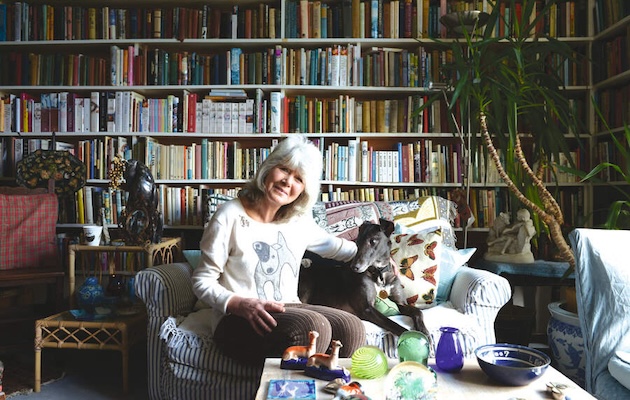Protecting the countryside provokes passion in Dame Jilly Cooper worthy of one her novels, says Deirdre Shields
Dame Jilly Cooper grew up in the countryside of Yorkshire. Apart from a brief spell in Camberley during the war, where she amused herself feeding “wartime carrots” to the Staff College horses and learning the names of wild flowers with her mother, she grew up around Ilkley, where her family had roots.
It was a magical time,” Jilly says. “We had ponies, dogs, the tennis club, cricket. It was ravishing countryside. I rode all over the moors. I was always looking for lost lambs
to pair back with their mothers. Daddy bought me my first pony-Rufus. He was ungelded, wild and vicious. When I met him, I flung my arms around him and he promptly bit me.
Whenever l rode him, he’d rear or try to mount everything in sight. I loved him.”
View this post on Instagram
When Jilly was 14, a riding accident left her scarred and crushed her nerve.”But I’m still bats about horses,” she says.”When I wrote Riders it was like Paradise Lost because going round the show-jumping circuit made me realise how much I missed horses. In fact, it was double Paradise Lost because I lost the manuscript on a bus and so I wrote the whole thing again, 14 years later. I hate reading my books but I looked at Riders recently and was struck by how much description there is of the countryside. I think it’s because we’d just moved here and I’d fallen in love with the country again.” (A TV remake of Rivals is shortly to be broadcast.)
View this post on Instagram
“Here” is a peaceful, old, stone house in a deep Cotswold valley. It’s so steep that you practically fall down the village of Bisley to reach the house. Inside, it’s comfortably crammed with paintings, books and snoozing dogs (“We’ve two dogs, four cats these days”). Under her famous charm, Jilly Cooper is a real workhorse. She’s written 37 books, not to mention all her journalism. Her books fill whole shelves and, spotting the familiar titles, it’s like seeing old friends again: Harriet & Octavia; Rivals; Polo; Score…For years Jilly and her publisher husband, Leo, lived in London.”
“I loved London, but I used to cry because I missed the countryside. We did the usual married run: Earl’s Court; Fulham; Putney; Move To The Country”. I worry passionately for the countryside’s future. Quite apart from the fact that it’s so ravishing, it’s very short-sighted to mess up the countryside. It needs protecting. We live in an Area of Outstanding Natural Beauty, thank God. Actually,” she giggles, “it was terribly embarrassing when we moved here. A man wanted to build a house in the woods above us. I wrote some appalling, lyrical purple prose for the local paper about how we didn’t want our beautiful woodlands spoiled and yobbos throwing crisp packets around. Then we were invited to a dinner-party and I sat next to this man. We managed to laugh about it.
People who hunt, shoot and fish
“I think the Council for the Protection of Rural England is wonderful, as is The Woodland Trust. (Read The Field’s article: Working with the Woodland Trust.) One good thing about protection is that the countryside’s become a herbaceous border. There were hardly any wild flowers when we came here. Now the cowslips and orchids have gone berserk. And there’s this two-edged thing with hunting. People who hunt, shoot and fish really do look after the countryside.” I hunted a bit as a child but I don’t really like killing animals. However, I think it’s stinking awful that the Government’s making such a fuss about foxhunting when there are terrible things going on with animals: torture in laboratories; live export; factory farming. I thought foot and mouth was a disgrace too, and set-aside’s a bit ridiculous.”
Animals in War
Together with Andrew Parker Bowles, Dame Jilly Cooper is campaigning for a national monument to animals killed in war. “In 1982 I was commissioned to write Animals In War,” she explains. “I thought it would be all dogs in sailor hats but it was ghastly. Eight million horses died in the First World War, not to mention all the dogs, camels and even elephants. I think I found it so traumatic because we’d just moved to Gloucestershire. I’d look out over this beautiful valley filled with animals and it was so idyllic in contrast. People say ‘Why bother about dead animals?’ but the past is a beacon for the future-and no one’s ever said thank you to them.”
Find out more about the Animals In War Memorial Fund here.
Main image credit: John Millar/Country Life





